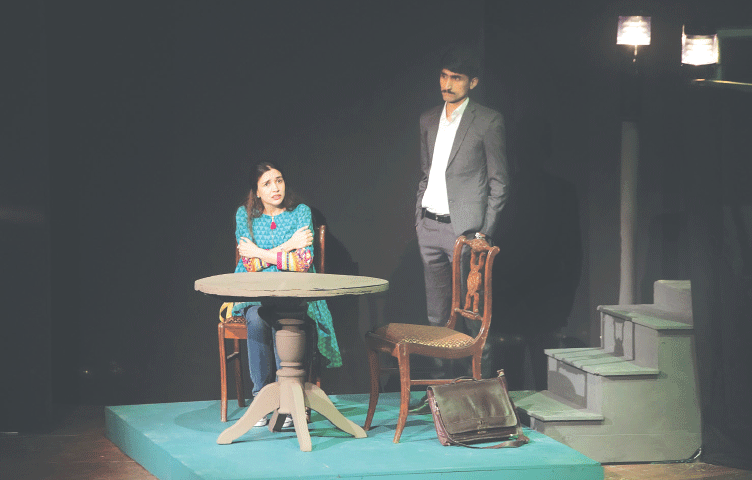Australian National University to Restructure, Absorbing School of Music into New Department
The Australian National University is planning a major restructure to save money, with the well-known School of Music set to be absorbed into a new School of Creative and Cultural Practice. The move aims to shift focus towards music production, technology, and Indigenous music, impacting traditional one-on-one instrument lessons.

In Oliver Djurkovic's mind, the Australian National University's (ANU) latest pitch to curb spending — which would see the institution's well-respected School of Music scrapped — defies logic.
\"Getting rid of one-on-one instrumental lessons at a music school defies any logic of how a music school should operate,\" the Masters of Music student and saxophone player said.
The ANU has been on a months-long hunt for savings after it was revealed last October it was staring down a projected $200 million deficit.
Vice-chancellor Genevieve Bell said then that a major restructure in an effort to save $250 million in spending would lead to a \"smaller university\".
The latest proposal towards achieving that goal is for the School of Music to be relegated to \"programme\" status and absorbed into a new School of Creative and Cultural Practice, with a revised Bachelor of Music to replace the traditional one-to-one instrument model.
Seven positions — five of which are currently filled — focused on performance, composition, theory and musicology, would go.
Music production, technology and Indigenous music would instead be prioritised.
The cuts are among the 59 job losses announced by the university last week, which followed the announcement of 41 job cuts last month.
Affected staff have three weeks to provide their feedback on the university's latest proposal.
Mr Djurkovic, who moved from Serbia to study music at the ANU, described the proposal as \"outrageous\".
\"I, like others, have taken on debt to go to this university, we've poured blood, sweat and tears to get in,\" he said.
\"I know many students who have come here from out of state — I've personally have come from Serbia, from two continents away — in seek of better education and better music career opportunities.\"
He said the proposed changes would have a \"catastrophic\" impact on those opportunities.
\"They would drastically change things — I don't think my professional development as a musician will be fulfilled if these cuts go ahead,\" he said.
\"There has already been cuts to one-on-one lessons, they are also cutting teaching staff, there are people losing their jobs and they're going to merge the School of Music with the School of Art and Design and the Centre for Heritage and Museum Studies.
\"That tells me that the university has priorities, and they apparently believe that art isn't a priority.\"
He said the proposed changes would have a \"catastrophic\" impact on those opportunities.
\"They would drastically change things — I don't think my professional development as a musician will be fulfilled if these cuts go ahead,\" he said.
\"There has already been cuts to one-on-one lessons, they are also cutting teaching staff, there are people losing their jobs and they're going to merge the School of Music with the School of Art and Design and the Centre for Heritage and Museum Studies.
\"That tells me that the university has priorities, and they apparently believe that art isn't a priority.\"
Mr Djurkovic is among a group of students known as \"No Cuts at ANU\", which has vowed to start protesting the proposal when classes resume on July 21 and not stop until their demands are met.
Peter Tregear, a former head of the School of Music, was unequivocal that the plan should not go ahead and the School of Music, which is 60 years old, should remain.
He also questioned the effectiveness of the proposed new teaching model.
\"I think you've got some difficulty,\" Mr Tregear said.
\"I'm certainly not opposed to the idea that we need to think more creatively around the types of teaching models that have been traditionally associated with an apprentice-master model of practical music education.
\"However, we need to be pretty aware, too, that some of the motivations — if not largely the motivation — for pushing in this direction away from that are not pedagogical, they're economic.
\"They're to do with the fact that that model of teaching is expensive to deliver.\"
Mr Tregear said it was important not to ignore the \"elephant in the room\" — the Nixon Report, an independent review into gender and cultural issues at the university's College of Health and Medicine.
It was sparked by reports of harm from staff and students, and found harassment and bullying were \"widespread practices\", with little or no consequences.
The report, released in May, also laid bare a dysfunctional culture of disrespect, sexism, racial discrimination, unfair workloads and nepotism at the ANU.
\"The findings that Christine Nixon found at the ANU extend both in time and space, they exist far beyond the College of Health and Medicine,\" Mr Tregear said.
\"If the ANU is serious about reform and ensuring it has a viable economic and social license into the future, it needs to be addressing those first and foremost.
\"I don't think, in the shadow of what that report says, the university really has the public trust to undertake such a dramatic curriculum reform when there is a fundamental question mark around the integrity that senior management cultures.\"
National Tertiary Education Union ACT division secretary Lachlan Clohesy said the performance model of the School of Music was what set it apart and what made it worth preserving.
\"It's distinct, it's very valuable in terms of the local community but also nationally,\" Mr Clohesy said.
\" This is the latest attempt by a vice-chancellor to try to save a few bucks by trashing something that's really important. \"
He said the revised Bachelor of Music is unlikely to appeal to students with ambitions to master an instrument and performance.
\"I don't think there is a future for performance at the ANU,\" he said.
\"If you're talking about people enrolling because they want to learn cello, violin, piano, jazz, vocal performance — those things are all in danger because of this.
\"They're completely changing the profile of what it is to study music at the ANU, so performance will be a thing of the past.\"
Research School of Humanities and the Arts director Kate Mitchell said the School of Music was a valued part of the university but it needed to modernise.
She added that the proposal, if it goes ahead, would not impact the way current students learn — only new enrolments.
\"The ANU remains committed to having music as part of its programs, our students love the School of Music, it has a really important place in the Canberra community,\" Ms Mitchell said.
\"But we are proposing some changes in order to make sure that we can continue to support the school and ensure that it has a really bright future.\"
Ms Mitchell admitted that the one-on-one model of teaching was prohibitively expensive but the reasons for the overhaul were more than just financial.
\"It's part of it, but also, the proposal changes that the School of Music has made to its curriculum tries to have a more holistic approach to performance, but also not treating performance as distinct from composition, from recording, from using technology creatively in music-making,\" she said.
\" There's a whole shift in the way that music is made, the context in which we listen to it, and the music program is trying to respond to that need. \"
She also said the new School of Creative and Cultural Practice shouldn't be seen as a money-saving venture but rather a reflection of the real world.
\"I can understand in a program of very broad change at the ANU there is a concern that that is what's driving this,\" she said.
\"In the contemporary context, those creative industries tend to be across multiple media, across disciplinary boundaries between art and music.
\"We'll still have a music program, an art program, a design program but we want to create a context that reflects the way creativity is engaged with today, which is collaborative and interdisciplinary and happens across those boundaries.\"
Ms Mitchell said she wasn't concerned about damage to the university's reputation or the loss of elite musicians from staff.
\"I think it's understandable that there are concerns but I'm not concerned for the longer-term,\" she said.
\"If the proposal goes through as it is, there will be the new school, and the community and the students will discover that our intention really is to ensure that music flourishes at ANU.\"
What's Your Reaction?
 Like
0
Like
0
 Dislike
0
Dislike
0
 Love
0
Love
0
 Funny
0
Funny
0
 Angry
0
Angry
0
 Sad
0
Sad
0
 Wow
0
Wow
0











































































































































































